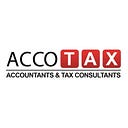Sole Trader vs Limited Company in 2021: Which is Best?
You want to know whether you should start your business as a sole trader or as a limited company. In most cases, we advise establishing a limited liability corporation. And in this post, we’ll look at why that is.
What about taxes on profits when you are a sole trader?
You are not specifically hired as a sole trader, and you do not earn a paycheck or wage in the conventional context. As a result, it’s critical to keep track of any personal sketches you use to pay yourself from the company. This lets you stay on top of your bookkeeping and calculate your earnings, although you will have to pay tax on your profits at some point. When you submit your annual Self Assessment, you’ll still need to set up enough funds to cover your tax bill.
What about a Limited Company?
For me, one of the most significant benefits is that doing a firm as a limited company allows you to pay less personal tax than if you were a sole trader.
So, what’s remaining?
When you work as a sole trader, your benefit and profits are practically the same things.
The benefit is what the company receives, and revenue is what you directly earn if you’re a shareholding director.
Taking out money
Extraction of funds from a limited company is easy. You are not allowed to pay any extra taxes if you take money out of the company. Everything you have to do now is ensuring that you have enough money to pay HMRC when it is due.
Borrowing from the business
You will borrow money from your company as a sole trader with no tax repercussions. You can also demand tax relief on bank costs and interest if your personal loan puts your company account in overdraft.
Accounting
Accounting is easy for most sole traders. You should do a basic three-line collection of accounts if the revenue is less than the VAT threshold (currently £85,000). Cash accounting is much simpler and more cash flow-friendly for sole traders than accrual accounting.
Treatment of losses
As a sole trader, you can use all other sources of revenue to cover your trading losses. As a sole trader, you can use all other sources of revenue to cover your trading losses. Running a limited partnership is more difficult and costly than working as a sole trader, although there are certain major drawbacks of operating as a sole trader.
If the business fails
If you’re a sole trader and go bankrupt, you’re personally responsible for all debts and will be pursued for them, perhaps leading to bankruptcy.
The scenario is different with small businesses. Your responsibility is limited to the amount of the company’s outstanding share capital.
It’s best to contact a London accountant as soon as possible. Tell us about the company and how it will operate. Tell us what you want to get out of it. We will then send you the best recommendations we think is possible depending on all of the knowledge you have.
